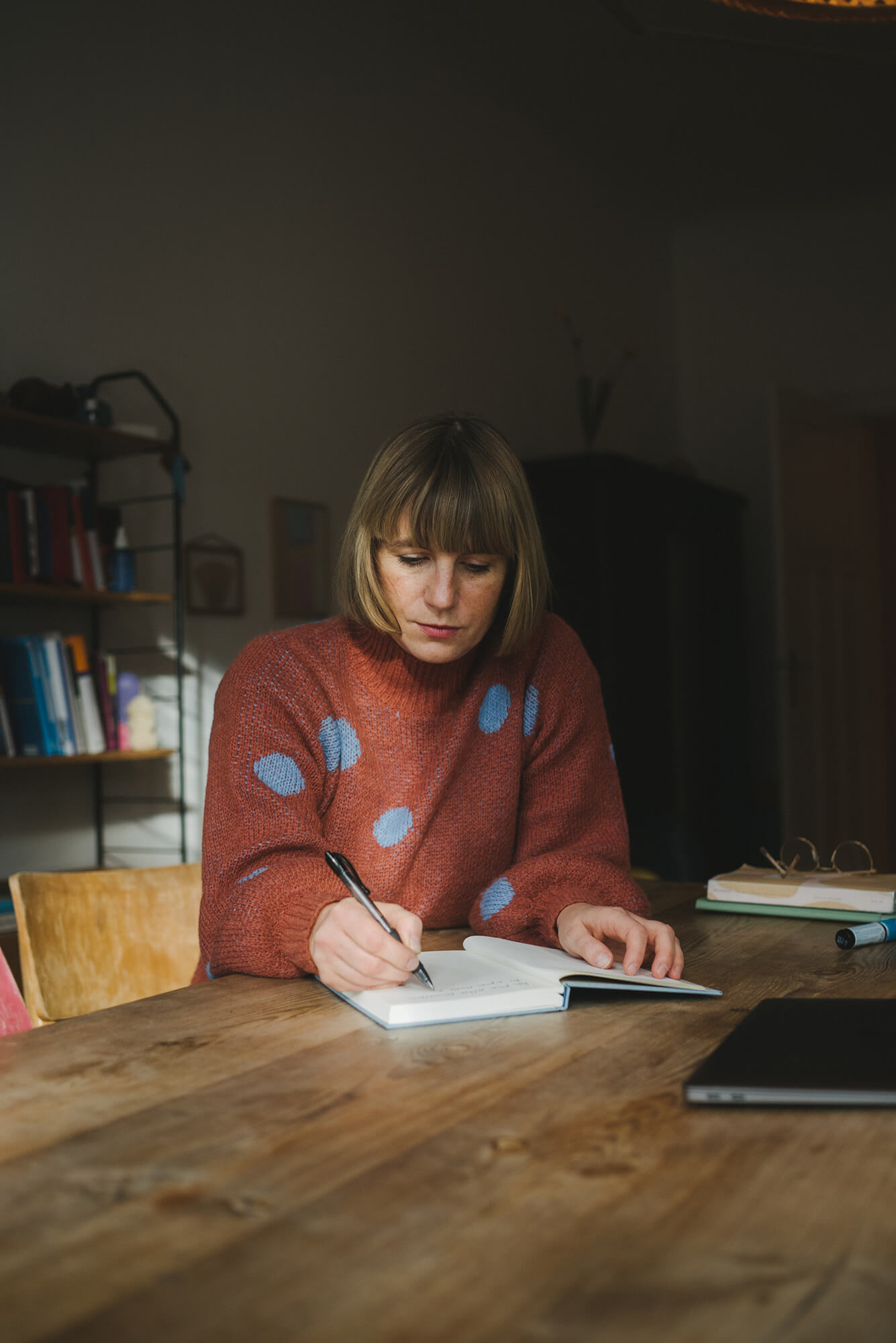Ms. Jakisch, as a mental coach, you help people to strengthen their mental health. Why is that important?
SANDRA JAKISCHChronic stress already has an impact on the body, mind and psyche after six weeks. We then often feel restless, driven, irritable, angry or even sad. Many people find it difficult to switch off. Your thoughts revolve around the same topics over and over again. This can be exhausting in the long run.
I help people find out what is challenging them. Only when we are mentally strengthened and healthy can we live a balanced and contented life. We are more resilient, that is, resilient. Resilient people have the ability to adapt well to difficult situations, to react flexibly and actually to gain strength through challenging or stressful times. The good news is that resilience can be learned.
What does a mentally healthy person look like?
SANDRA JAKISCHI think mentally healthy people are flexible. Of course, challenging situations happen to them too, but they can deal with stress differently – we say more regulated. You will come to rest more quickly. That means, for example, they can argue and then say: OK, that was the argument now. That happened. I noticed him, but now I can let him go again. They find solutions for themselves or take a different perspective. Often times it is not the problem that is the problem, but the relationship we have with the problem.
So it’s about resilience?
SANDRA JAKISCHIt’s not about being solid as a rock all the time. We are people with emotions and not robots. Rather, it is about perceiving the feelings and signals and recognizing: This is hurting me right now or is scary. And then take care of the feelings by, for example, taking a short break, stepping out of the room and taking three deep breaths. Especially in moments of anger or fear, it is also helpful to follow our impulse to move. Walking, cycling, jumping on the spot or running is great for letting out pent-up energy that has been created by emotions.
If I am mentally stable, I can courageously come into contact with my emotions. Then I am aware of myself.
Are there recurring topics that your clients come to you with?
Are there recurring topics that your clients come to you with?
SANDRA JAKISCHMost people are emotionally stressed. When mental health is out of balance, self-esteem often suffers. At that moment, people are no longer aware of their strengths. But there are also people who cannot switch off or who have problems in their partnership.
Many people are coming more often because they feel restless, have difficulty falling asleep or staying asleep. Especially now during the corona pandemic, many people are exhausted from the constant tension that reigns around them. At the same time, they are overloaded because they work too much and take few breaks.
Do you feel like people have lost their awareness of stress?
SANDRA JAKISCHThe body signals relatively early on when a situation becomes too much. For example, from headache or backache, from pressure in the stomach area or tension in the jaw. Many people literally clench their teeth. It is advisable not to push these feelings away, but to recognize your own needs and pay attention to your body in good time. The important thing is to simply ask yourself: How am I actually today? What would be good for me now? What signals does my body send me? Mindfulness enables you to get to know your own body and needs better. And it gives the brain time to ventilate.
How can people be more mindful in everyday life?
SANDRA JAKISCHYou can’t always sit down and meditate right away. Many people are too restless for that. It is helpful to start with it little by little. Mindfulness can be practiced in small steps. What do I perceive outside, what do I perceive inside?
How does it work, being mindful of yourself?
SANDRA JAKISCHChildren are a good example. Walk curiously through the streets, maybe take other paths than before, look at houses and trees. Or pay attention to the taste and smell when eating. Ask yourself questions: What do I need right now? Am i hungry? Am i thirsty? How am I feeling right now? What can I say kindly to myself?
The next step would then be meditation. It doesn’t have to be 45 minutes a day, the main thing is that you meditate regularly. Sometimes just five minutes of breathing exercises a day are enough to strengthen the autonomic nervous system and thus our resilience.
Why does mindfulness help us?
SANDRA JAKISCHIt helps us to recognize things that happen automatically. We often react impulse-driven. The mind is switched off more and more and there are blackout moments. We are speechless, we freeze or we would like to run or fight. One speaks here of the fight-or-flight reaction. If we succeed in becoming aware of our emotions in stressful situations, then we can react in a self-determined manner. Then we remain able to act.
How often should I train my resilience?
SANDRA JAKISCHIf we stopped moving, we would go limp. Mental health training is similar. We need regular training in the form of mindfulness, movement and exchanges with other people.
We can only react calmly in emotional moments if we have practiced in relaxed situations beforehand. This is why breathing exercises are so important. I recommend my clients start by taking long breaths in and out three times a day.
We know from research that new patterns can arise after 60 days, which then run again automatically. So if I train to breathe out for a long time, which calms my autonomic nervous system and my limbic system in stressful situations, it can calm me down automatically at some point when I need it.

Many people suffer from insomnia. Do you have any tips that might help?
SANDRA JAKISCHWhen the body comes to rest, it sometimes shows more strongly when something is out of balance. That’s why so many people get sick on vacation. If we suppress certain topics during the day, they catch up with us in the evening. This is why rituals before sleep are helpful. For example, it can help to read the latest news three hours before going to bed or to put the cell phone away in good time so that the head has enough time to relax.
If you are lying in bed and a topic is still heavy in your stomach or on your chest, it is good to just perceive this feeling first. It is helpful to place your hand on this part of the body, for example. Touch calms the body. Just like a long exhale.
A ritual that I introduced myself with my family for the first lockdown is to massage the feet with lavender oil before going to sleep. You can use this with your children, your partner or yourself and ensure calmness and a relaxed sleep.
What do you do when your thoughts turn before you go to bed?
SANDRA JAKISCHIf you are feeling very restless, it helps to shake your whole body out before bed. That sounds a bit funny, but it helps. The trauma therapist Dr. Peter Levine and other scientists have observed animals in the wild. Animals shake off stress after a fight or danger. It is also good for us humans to shake off or tap off the pent-up energy of the day. Simply pat your chest, arms, hands, legs, back and also your face with your fingertips. This calms the vegetative nervous system.
If you find it difficult to switch off and you brood a lot, warmth can help. Wear a warm woolen hat or warm your hands before going to sleep by rubbing them tightly together. Place your warmed hands on your forehead. You can also stroke from the eyebrows up to the hairline. That lets the thoughts come to rest.
Let’s also talk about work-life balance. How do you manage to lead a more balanced life?
SANDRA JAKISCHIt is important to allow yourself enough breaks and sleep. Stress is particularly regulated during REM sleep. We need this recovery in order to be mentally balanced.
Try to structure your day. Get up at similar times, take breaks, and finish working from home at set times. That gives security and stability. In the home office in particular, it is important to leave work at humane times, to consciously plan time for pleasant things and friends – even if the contact is currently more via Zoom or the phone.
We humans need social connections. And friends. Joy strengthens our immune system. Smile, play a favorite song and dance, whether alone or with friends via zoom – that brings lightness back and strengthens mentally.

